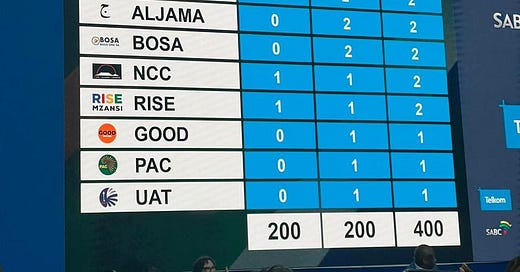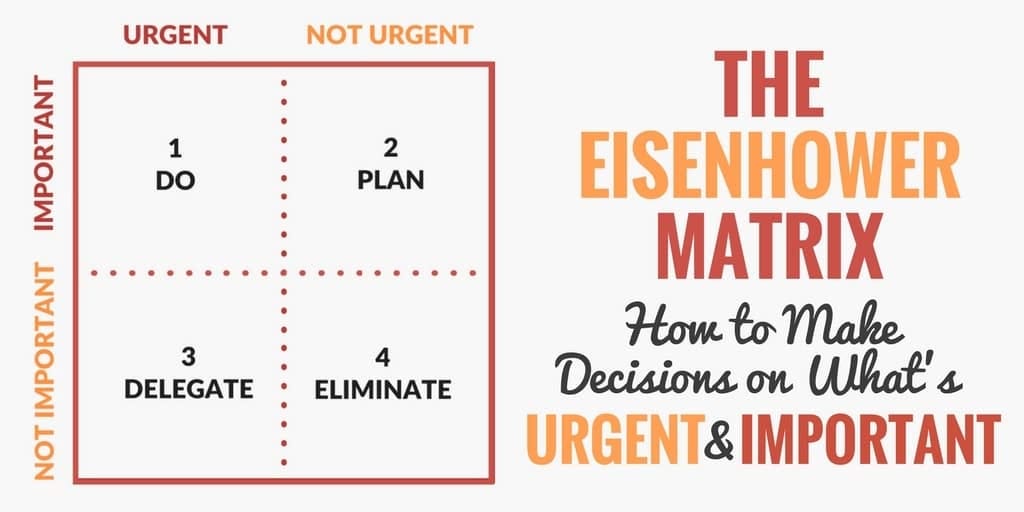Where does one start?
In the aftermath of the elections, the ship needs to be turned around. I suggest a framework for thinking about this.
It is 10am on Monday, 3 June 2024, the start of a momentous week in our politics. I am no political fortune teller, but I did win the prediction on one Whatsapp group (I had the ANC at 43%). I certainly didn’t win the most important polling competition in Cape Town, the Blue Café free pizzas for the best prediction competition. There you had to rank the top seven parties. I missed how well MK would do, and I overestimated RISE, in part because RISE came second in the home of the Blue Café, but not so well elsewhere. No free pizza for me.
As a centrist myself, I am quietly hopeful of a centrist solution in the longer run. A proper coalition agreement between the DA and the ANC is possible and probably the best case. Having worked for the centrist factions (I guess) of both sides, there is enough mutual respect and policy overlap for them to find a workable way forward.
But there are enough voices on both sides to not want a coalition, and there a confidence-and-supply system is workable, with the DA supporting appropriation votes and promising not to vote in no confidence votes.
Confidence-and-supply works because Schedule 5 of the Constitution prescribes that the President is elected using a run-off system. However, money bills can only be initiated by the Minister of Finance and passed by a majority of the House. In this scenario, the House selects the President, he (or she or they) in turn selects the Minister of Finance, and he (or she or they) table the next big budget bill (the MTBPS in October).
To get the Bill through, the Minister will need at least 201 votes. Twenty years of working at a Treasury makes me think it will be easier to get a Budget through with the ANC/DA/IFP/FF+/ASA/ACDP/UDM/RISE/GOOD vote coalition (about 290 votes) than with an ANC/EFF/MK group (Around 256 votes). This is because an ANC/EFF/MK budget will have to be a complete rewrite, whereas an ANC/DA/Moonshot Pact budget is pretty much in line with the Budgets that have been passed over the past few years.
(There is a chance, actually, of the ANC vote splitting, and when it comes to things like no confidence votes and Budgets, there is a chance a chunk of the party will vote one way and another chunk the other way. This will be fun.)
There is a good chance it may even be a better Budget - the DA coalition is likely to sommer decline any budget with a cent in it for SAA and a range of other silly SOEs (Denel etc.)
But that is just my two cents, riding on the joy of beating some mates on the ANC vote share. (I also beat our own political analyst, but don’t tell him).
Ok, now that we have a vaguely working government, what should they do?
So whoever takes over will need to start working.
Anyone who has had the pleasure, privilege, pain or unpleasantness of working in a team with me will know that I am a huge fan of the ‘Eisenhower Matrix’, particularly when you are facing a huge number of possible tasks.
The two axes of the matrix are urgent / not urgent and important / not important. Things that you need to do can then be classified as (1) urgent / important; (2) not urgent but important; (3) not important / urgent and (4) not urgent and not important.
The idea is that for type 1 tasks, you must DO. Get them done as soon as possible. For type 2 tasks, you must PLAN, i.e., decide how, when, where and what needs to be done. For type 3 tasks you DELEGATE and the type 4 ones are neither urgent nor important, so need to be binned, i.e. ELIMINATE.
A lot of what goes on in government is neither urgent nor important. There are endless forms to fill in and keep track of, in part because government officials like to feel busy.
For the incoming administration, whatever it may be, the temptation will be to fall into the trap of having endless briefings and meetings about things. I have been in meetings that last five, six, seven hours, and you emerge blinking into the cold brightly lit corridors outside barely conscious of anything that has actually been done.
(Obama actually has this whole little lecture on the fact that doing stuff is important = see it here.)
First off, the fiscal consolidation needs to continue but be more sensible. The fiscal consolidation has been derailed by the SOE bailouts, and the time has come to end that. More money needs to go to education and health, and there needs to be some sensible alignment of education and health with actual population growth. As Michael Sachs has repeatedly said, the Budget is not keeping up with urban population growth (read more here, particularly p. 13).
Second, the coalition (or whatever) needs to be crystal clear on what is happening to Operation Vulindlela. (It needs to be retained obviously.)
Then on a policy front, I have taken each of the six E’s (Eskom, Education, Equality, Environment, Exports and Ethical and Effective State) in my book and categorised them.
DO
Electricity: Push the break-up of Eskom as fast as possible. The Eskom unbundling is critical to the future of a competitive power market. But also, it shows the way forward to reform of other state-owned monopolies, such as Transnet.
Exports: drive the concessioning of ports RELENTLESSLY. Somewhere somehow, the concession of ports has hit a blockage.
Effective and Ethical State: Put in place experienced people (i.e. people who have actually run actual companies) on the boards of the State-owned enterprises and bring back performance related pay throughout the bureaucracy
PLAN
Education: The reform of the education system is quite crucial, but will require some planning.
Environment. Pressing ahead on introducing a carbon market is the logical next step in this area but it is relatively technically complex so needs quite a bit of planning.
DELEGATE
I am cheating a little here, but the one that can easily be delegated is processing of highly-skilled visas. Anyone who has travelled anywhere knows that visas are all done through a global company (VFS) that does it for everyone, so surely it wouldn’t be that hard to accelerate the highly-skilled visa?
ELIMINATE
Of all the policies in the world that we could choose to try implement, NHI is possibly the worst. It is a time sucking idea. I did my honours thesis on a topic within NHI (published here), and then I have been in meetings on NHI since I started at the Treasury (in 2002). I do not understand it. I thought it was just me, but then I recently listened in on a debate with two experts on it, Alex van der Heever and Craig Comrie, on the topic (available here), and was struck that no-one understands it. And reading Nicholas Crisp’s Business Day article on it, I don’t think even he understands it. Eliminate.
Ok ok, I know this is not the first time I have said this, but another area for elimination would be the smaller state-owned enterprises. It boggles the mind that the Treasury still has to bail out of SAA, Denel, Armscor, etc. The serial defaults of these little SOEs are neither urgent nor important, despite midnight entreaties to save SAA. In the book, I talk about the Chinese policy called “Grasp the Large, Let Go of the Small”, where China closed small state-owned enterprises.
Of course, a minority government is what woke India up. The plan is all there, so it just needs to be done.
So here’s some quiet hope for Monday morning.







Makes sense then again when it’s political decisions mostly take the wrong road
Not sure I agree entirely but certainly surprised there was no link to your book and where to buy it! LOL!